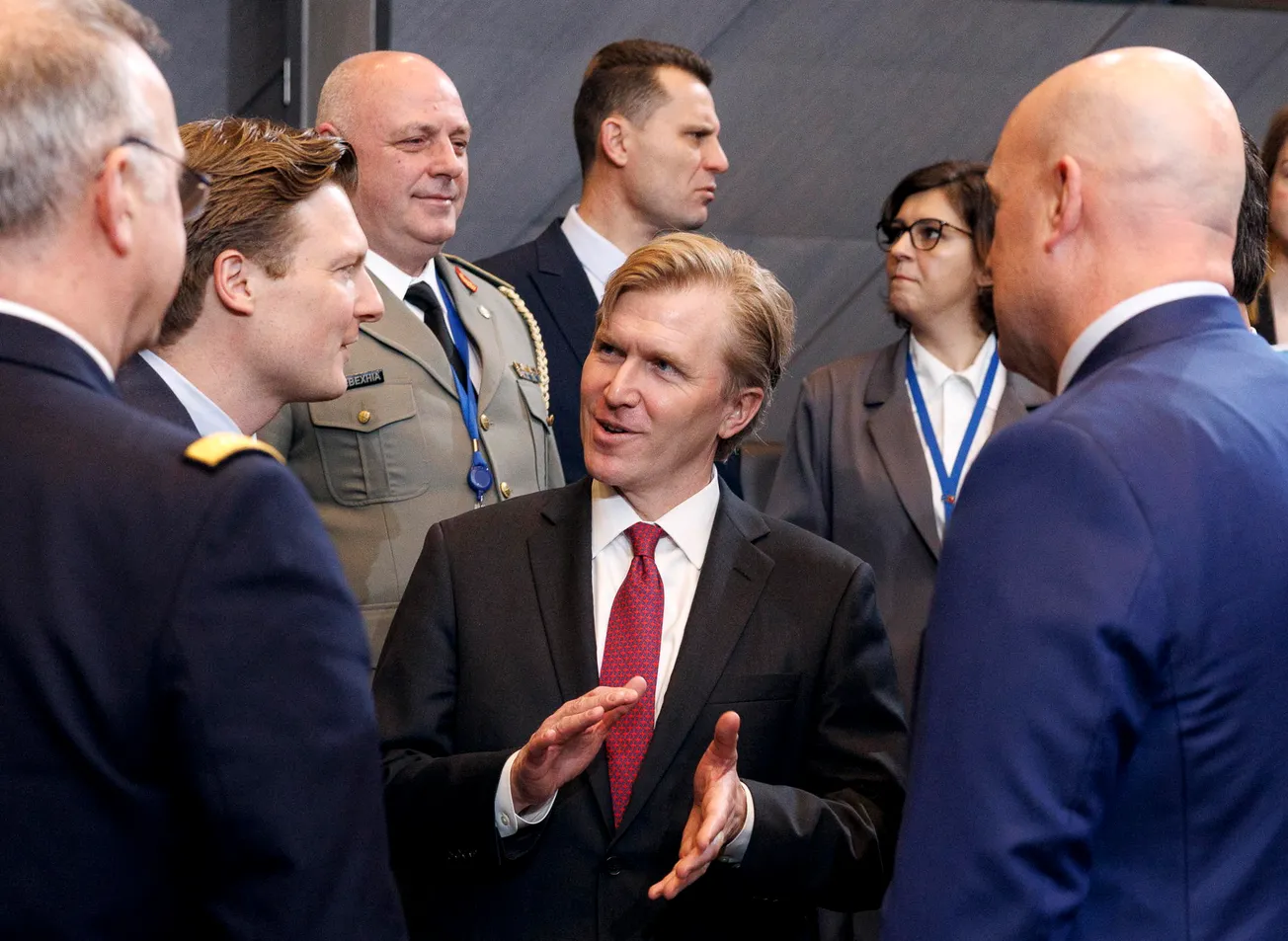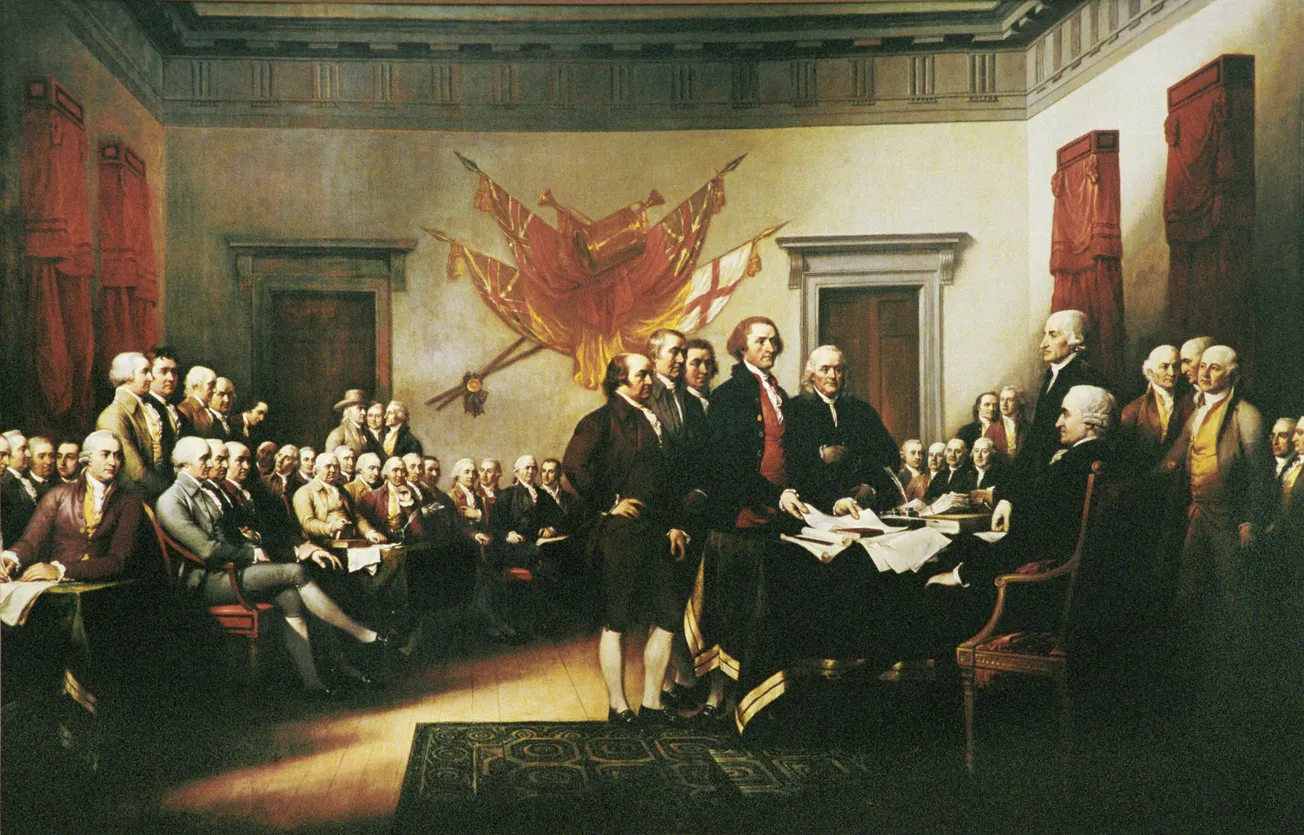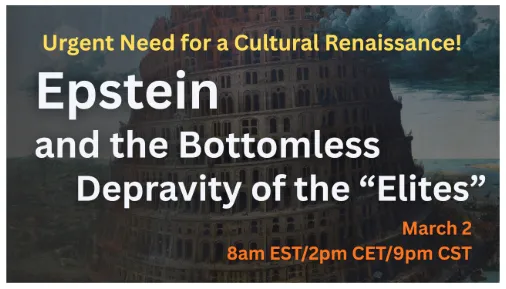The Lead
The Economics of Win-Win
by Stewart Battle (EIRNS) — Apr. 14, 2025
Today, the world is on a sea of uncertainty, hovering between multiple crises, while at the same time on the verge of a breakthrough. The growing potential of normalization of relations between the U.S. and Russia continues to move forward, although many obstacles still stand in the way for a meaningful resolution after years of anti-Russian hysteria. U.S. President TrumpU.S. President Trump gave a useful reminder that he had opposed the Biden administration’s mindless march to nuclear war, in an April 14 post on his Truth Social account, writing: “President Zelenskyy and Crooked Joe Biden did an absolutely horrible job in allowing this travesty to begin. There were so many ways of preventing it from ever starting.”
Despite this, we should not be lulled into thinking we are out of the woods. Certain European nations are frantically pushing to implement their “coalition of the killing,” desperate to keep the war against Russia going—even to the point of deploying their own troops to Ukraine. Incoming German Chancellor Friedrich Merz reiterated his intent to send long-range Taurus missiles to Ukraine, and even went so far as to point to Russia’s Crimean bridge as a focus of attack. The response to the recent Russian strike in Sumy appears to be another example of this, as Kiev and Western media parrot the narrative that no talks are possible with Russia.
In Southwest Asia, the indirect talks last weekend between U.S. envoy Steve Witkoff and Iranian Foreign Minister Abbas Araghchi were a hopeful sign that diplomacy may still be able to win out over war. Reports from both sides are emphasizing that the discussions were positive and respectful, and the decision to meet again on April 19 is promising. Though it’s not known where it all will ultimately lead, it’s clearly a departure from where the war hawks would prefer to take it. Both the Israelis as well as die-hard U.S. neocons like Elliott Abrams and the Atlantic Council made it clear they believe the negotiations should hurry up and fail, so that military strikes on Iran can begin.
But when it comes to tariff and trade policy, Trump has not been so successful—nor will he be if he doesn’t change course. The rash of imposition and escalation of tariffs between the U.S. and China last week have created a situation of extreme tension. As was said in the April 10 Schiller Institute statement on this situation: “President Trump seems to intend to free the world financial system from the speculative aspects of globalization, which would be a legitimate effort. But the interpretation that the whole world looted the U.S. puts the whole story upside down. It was the neoliberal financial system of Wall Street and the City of London … that created a mechanism to loot productive capacities in all countries, including the U.S.” [Emphasis added.]
Without reversing the collapse in physical productivity generally, tariffs and trade adjustments will only have disruptive, and destructive, effects. Indeed, the shipping tracking site Vizion reported a 64% drop in shipment bookings for U.S. imports from China in the first week of April, and a 34% drop for U.S. exports to China. Then on April 11, China enacted a ban on the sale of rare earth metals and rare earth magnets to the U.S.—materials that are absolutely vital for many aspects of the economy, especially high-tech products and those with electric motors. The assumption that the U.S. can make up the difference overnight, after decades of dismantling its industrial sector is a dangerous fantasy, and risks triggering a much bigger blowout of the entire bankrupt financial system.
On the contrary, (former) Romanian presidential candidate Calin GeorgescuCalin Georgescu has pointed to a very different idea. Georgescu—who was on his way to becoming the president of his country until democracy in Romania was cancelled and he was prevented from running—gave an interview to Tucker Carlson on April 10, where he said that his vision is to have a “Hamiltonian Romania,” that has “freedom and dignity,” as opposed to “technocracy and debt.” “And one of the bestAnd one of the best,” Georgescu said, “is the founding father of United States, Alexander Hamilton.”
Georgescu’s identification of Hamilton, the principal creator of America’s anti-imperial economic system, has a very important implication for today. If Trump, or any other Western country, were to implement Hamilton’s principles of economics, as China has, it would be the best approach to rebuild the world out of the ashes of the dying British liberal system. Such a win-win approach of global economic development and peace, a new security and development architecture, which identifies, as Hamilton did, that true value lies not in money but in that physical and mental creative capability to advance mankind—this is the pathway with which to truly secure the future.
The only economist who has thoroughly understood and advanced Hamilton’s principles in recent history is Lyndon LaRouche, which is why the Schiller Institute’s May 24-25 conference is an event you don’t want to miss.
Contents
Collapsing Imperial System
- Hedge Fund Billionaire Echoes Zepp-LaRouche: Blowout Worse Than 1930s (↓)
- China Halts Exports of Rare Earth Metals to U.S. (↓)
Strategic War Danger
- More Ukrainian Civilians Die in Sumy: Russian Targeting or Kiev's Policy? (↓)
- U.S. and Iran Hold Positive, ‘Constructive’ Talks in Oman (↓)
- Merz Reiterates Intent To Deliver Taurus Missiles to Ukraine (↓)
- Not Everyone Happy With U.S.-Iran Diplomacy (↓)
New World Paradigm
- Lavrov Proposes a Greater Eurasian Partnership Instead of the Euro-Atlantic 'Creature' (↓)
- Georgescu Raises Hamiltonian Economics to Tucker Carlson (↓)
U.S. and Canada
- Sudden April Drop in Trade Shipment Bookings with International Impact (↓)
- Trump Attacks Zelenskyy: ‘There Were So Many Ways of Preventing’ Ukraine Conflict (↓)
Harley Schlanger Update
Watch The Daily Update with Harley Schlanger, a short video update available every weekday morning from The LaRouche Organization.









